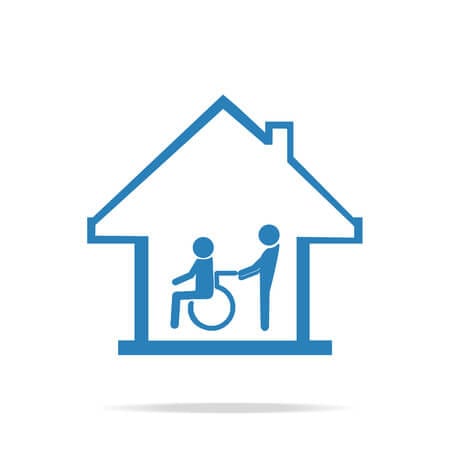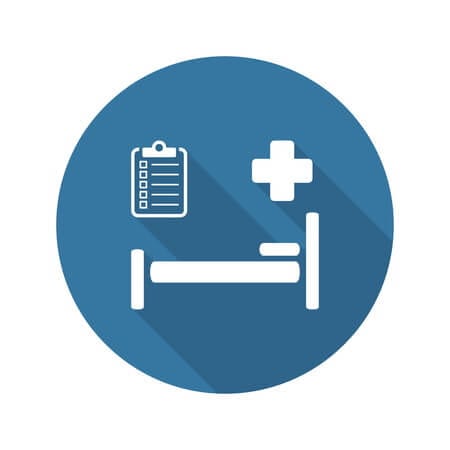The core function of all home health aides and personal care aides is to assist people with disabilities, cognitive impairment and chronic illnesses in their day to day lives. The time could not be better to become a home health aide because the job of a home health aide is growing at an incredible 41% nationally according to the latest stats from bls.gov!
What is the process to become an HHA?
STEP 1 – Have or get your H.S. diploma or GED
This is the most important requirement. If you have your diploma your are on your way to becoming an HHA!
STEP 2 – Take accredited HHA Training Classes
Taking the right course will set you up for success and allow you get certified in your state. Making sure your education is accredited in your state is vital. There are also online options for HHA training like Home Care University from the NAHC itself. Most community colleges have the NAHC certification courses available and once you finish the program you will take the NAHC exam. The NAHC exam is 50 questions and costs $140.
If you want to search a large database of accredited training options in home health care see the NCES.ed.gov database at the link here. Another resource for finding accredited training is from the (ABHES) Accrediting Bureau of Health Education Schools database and you cans search it for HHA training courses at the link here.
Check the exam pass rates for previous students if possible
If you choose to go to an online HHA program or at a for profit school, be sure to check the pass rates of prior students. This will tell you if attending the program is really worth it.
Check course availability
Make sure that your program of choice has course times and classes that fit in to your life and schedule. This can be critical for your long term success.
Sponsored Search
About online HHA classes
As mentioned above there is an online program given by the NHAC so you know online training is beneficial for HHAs. That being said if you do chose online education be sure to make sure that the graduation rates and exam pass rates are not too low. You may want to avoid places where there are a lot of fails and drop outs. If you do that your online training experience can be amazing!
Click on the link to get great information about online HHA certification classes
School cost
Depending on if you take online courses are traditional classes there can be a cost difference. But in home health aide training the overall school costs is minimal in comparison to other allied health fields.
Step 3 – Complete the program and state-required hours
Most programs and states have a 75 hour on the job training hour requirement. Click here for a list of the required hours for each state.
Step 4 – Get your HHA Certification
Where to take the HHA exam
If you are getting on the job training then you will probably take the exams at work or online. If you take an HHA training course than you may also take it online or in the facility itself.
What does a Home Health Aide do?
As mentioned above, HHAs assist in the daily lives of those needing daily care. This care is usually done in patients homes or residences or in a clinical setting or long term care facility. Below we look at the job duties that are common for home health aides or personal care aides.
Assist clients with daily tasks
Help with tasks such as laundry, dishes or vacuuming
Assist with the organizing of client’s schedule and plan appointments
Arrange any necessary transportation to and from appointments
Prepare meals and shop for food for client
Help client with community engagement and activities
HHA Training Information by State
LTCF and nursing homes

Pros and Cons for LTCF/Nursing Homes
Pros: Low-stress environment with lots of opportunities.
Cons: Pay is generally lower and the slower pace may not be for everyone.
Home healthcare agencies

Pros and Cons for Health Care Agencies
Pros: Pay is similar to nursing homes and LTCFs, but the patient-to-HHA ratio is better. The home health aide/personal care aide cares for a client in his or her home, meaning less job-related stress.
Cons: It may take awhile to be assigned to a patient, and it is not uncommon to lose patients.
Hospitals

Pros and Cons for Hospitals
Pros: Wide range of available shifts, good job security, and comparatively higher pay.
Cons: The fast-paced environment can be stressful.
Step 5 – Finding a job as a Home Health Aide
About HHA salary
Home health aides are one of the fastest growing allied health fields! BLS.gov has statistics showing tremendous growth over the next decade! Below we look at the whole field of home health care and give deep insight in to how much they make and much, much more!
What is the average salary for a Home Health Aide?
See the table below for all the salary and hourly wage details from top to bottom.
HHA salary by state
| State | AVG Hourly wage | AVG Annual Salary |
|---|---|---|
| Alabama | 9.63 | 20020 |
| Alaska | 16.00 | 33290 |
| Arizona | 11.55 | 24030 |
| Arkansas | 9.53 | 19820 |
| California | 14.05 | 29210 |
| Colorado | 13.02 | 27080 |
| Connecticut | 13.22 | 27490 |
| Delaware | 15.04 | 31290 |
| Florida | 13.33 | 27730 |
| Georgia | 11.25 | 23410 |
| Hawaii | 10.38 | 21590 |
| Idaho | 12.78 | 26590 |
| Illinois | 10.64 | 22120 |
| Indiana | 11.46 | 23840 |
| Iowa | 10.97 | 22820 |
| Kansas | 12.97 | 26990 |
| Kentucky | 11.53 | 23980 |
| Louisiana | 12.36 | 25710 |
| Maine | 9.53 | 19820 |
| Maryland | 11.87 | 24690 |
| Massachusetts | 12.06 | 25080 |
| Michigan | 14.04 | 29200 |
| Minnesota | 10.85 | 22560 |
| Mississippi | 12.69 | 26390 |
| Missouri | 10.19 | 21200 |
| Montana | 10.79 | 22440 |
| Nebraska | 11.49 | 23900 |
| Nevada | 11.92 | 24790 |
| New Hampshire | 13.86 | 28840 |
| New Jersey | 13.35 | 27780 |
| New Mexico | 11.17 | 23230 |
| New York | 11.29 | 23480 |
| North Carolina | 11.61 | 24150 |
| North Dakota | 9.70 | 20170 |
| Ohio | 15.95 | 33170 |
| Oklahoma | 10.31 | 21450 |
| Oregon | 11.91 | 24770 |
| Pennsylvania | 11.52 | 23960 |
| Rhode Island | 11.22 | 23340 |
| South Carolina | 9.00 | 18720 |
| South Dakota | 13.14 | 27330 |
| Tennessee | 9.96 | 20710 |
| Texas | 13.32 | 27700 |
| Utah | 9.93 | 20660 |
| Vermont | 9.88 | 20550 |
| Virginia | 12.80 | 26620 |
| Washington | 13.22 | 27500 |
| West Virginia | 10.88 | 22640 |
| Wisconsin | 12.33 | 25640 |
| Wyoming | 9.64 | 20060 |
Source: www.bls.gov
Salary by employer type
| Workplace | Average Pay |
|---|---|
| Nursing care facilities (skilled nursing facilities) | $23,570 |
| Continuing care retirement communities and assisted living facilities for the elderly | $22,860 |
| Residential intellectual and developmental disability facilities | $22,510 |
| Services for the elderly and persons with disabilities | $22,410 |
| Home healthcare services | $22,390 |
Source: www.bls.gov
What is the job outlook for Home Health Aides?
As mentioned earlier the job outlook is amazing at a 41% expected growth over the next decade!! The time could not be any better for Home Health Aides and Personal Care Aides!
Top 5 Paying States for HHAs
| State | Avg. Hourly Wage | Avg. Yearly Salary |
|---|---|---|
| Alaska | $16.00 | $33,290 |
| North Dakota | $15.95 | $33,170 |
| Delaware | $15.04 | $31,290 |
| California | $14.05 | $29,210 |
| Massachusetts | $14.04 | $29,200 |
Source: bls.gov


